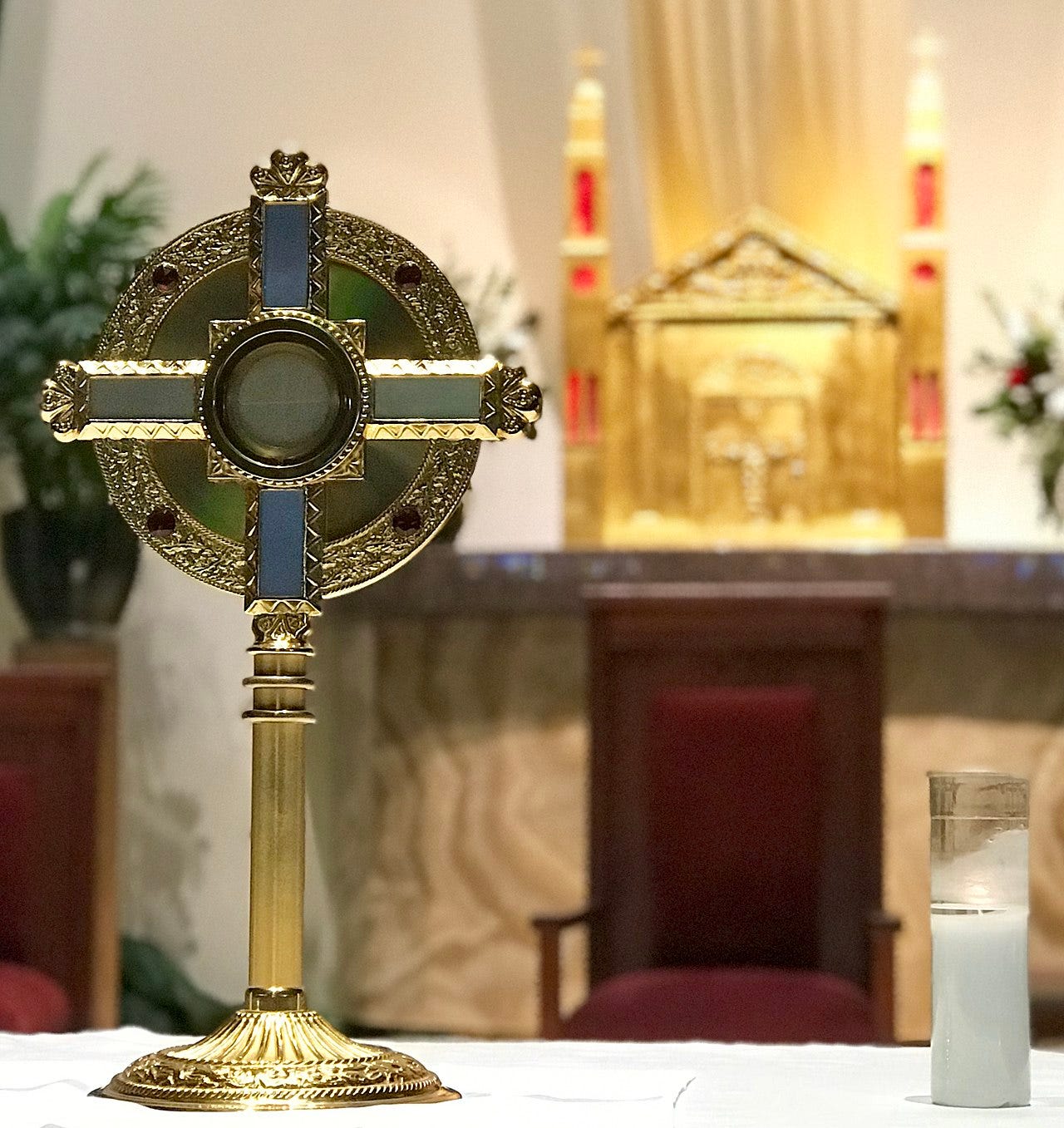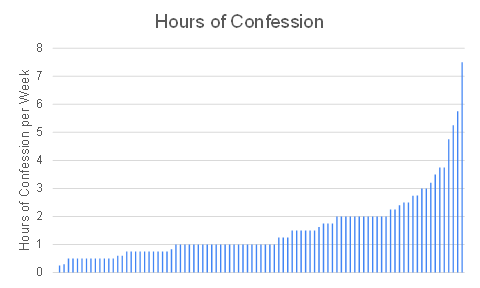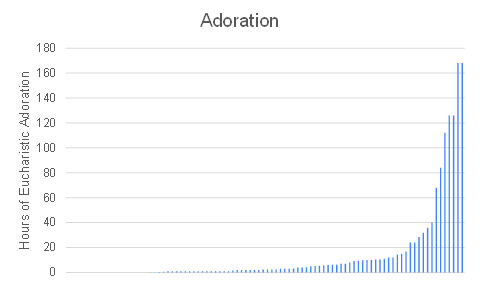
Praying and paying: Is there a link between parish devotions and weekly collections?
Data analysis: Parish finances
It is not uncommon to hear among Catholics the hypothesis that a parish’s spiritual health and its financial prospects are directly connected. That may be true. But an analysis of parish collections, along with adoration and confession hours, suggests that connection may not be as clear-cut as is sometimes believed.
Do adoration and confession actually impact the collection plate?
The Pillar aimed to find out.

In March, The Pillar reported a series on our study of parish collections during the COVID-19 pandemic. Across a sample of 100 parishes in ten regions of the United States, 2020 offertory collections fell an average of 12% from their 2019 levels.
Our study looked at a number of different demographic factors, but the only strong predictor of how much parish collections were impacted by the pandemic was the September 2020 county unemployment rate.
After we published the study, commentators like Terry Mattingly asked whether aspects of Catholic practice could be predictive of how well parishes weathered the pandemic.
Would parishes with more confession and more Eucharistic adoration before the pandemic do better at maintaining parish collections during the pandemic?
We went to the numbers.
The Pillar updated our database of collection trends at 100 parishes, by adding data on the number of hours confession was available each week, the weekly number of hours of Eucharistic adoration, and whether there was a perpetual adoration chapel. For good measure, we also added whether the Extraordinary Form of the Mass was offered at the parish.
Whenever possible, we looked at weekly confession and adoration hours offered immediately before the pandemic began locking things down. When it wasn’t possible to find data specific to that time period, we pulled the data from the times listed on parish websites without reference to any dates— but in most cases, it appears those times were pre-pandemic offerings as well
Of the 100 we studied, only six parishes had an adoration chapel, and only two offered the Extraordinary Form of the Mass. Those numbers were too small to draw conclusions from, so we had to discard those points of data from our analysis.
(If you’re curious: Of the two parishes that offered the Extraordinary Form, or “Traditional Latin Mass,” one did better than the average in maintaining offertory during the pandemic and one did worse.)

There was, however, plenty of available data on confession and Eucharistic adoration in parishes. Among our sample of 100 parishes, the average parish offered 1.5 hours of confession and 14 hours of adoration weekly.
With regard to adoration, it’s important to note that the weekly average was heavily influenced by a small number of parishes offering very extensive hours of adoration. Only 13 parishes in our study offered at least 24 hours of adoration per week.

There is an intuitive thesis that parishes with more hours of confession and more hours of Eucharistic adoration offered before the pandemic would be more likely to have more spiritually active parishioners, and those parishes would be more likely to maintain stable weekly collections during the pandemic.
But data analysis always comes down to the data.
When we plugged the confession and adoration data into our regression model, along with the unemployment data we had used in our initial analysis, we found that neither confession hours nor adoration hours provided any additional predictive power.
We found, in short, no predictive correlation between weekly giving and weekly confession or adoration hours.
Still, when you have a really good hypothesis, it’s hard to give it up. We tried a few more approaches to see if the data would eventually agree with our theories. It didn’t.
We looked at the average number of hours of adoration and confession in each diocese, and compared those number to the average change in offertory in each diocese — we wanted to see whether the parishes with more-than-average adoration or confession hours had done better than those with below average hours, in the same diocese.
That analysis, too, gave us no new conclusions.
There was no overall relationship between weekly hours of confession or adoration and the strength of tithing during the pandemic.
But one nugget of data among parish outliers is worth noting: Six parishes in our study had more than three times the average number of weekly Eucharistic adoration hours in their dioceses.
In a comparison of 2020 collections versus 2019, all six of those parishes did at least 4% better than their diocesan average.
For that group of six parishes, which among them averaged 102 hours of Eucharistic adoration per week, weekly collections were on average 7% better than the average parish collection in their diocese.
Does this mean that parishes with lots of hours of eucharistic adoration always have higher collections? Not necessarily. A broader study would be needed to establish such a correlation.
Our regression model did not conclude adoration hours were predictive: there is not a linear relationship between adoration hours and collections amid the pandemic. And unlike parishes with more than three times their diocesan average of adoration hours, parishes with more than twice the diocesan average had no discernible giving pattern at all.
Still, the small group of parishes with high amounts of adoration hours might point to a connection between parish Eucharistic devotion and parishioners who went beyond the norm to support their parishes financially during the pandemic. We’d simply need more data to know.
No matter what more data might prove, Fr. Bill Dailey, CSC, told The Pillar that finances don’t, and should not, drive the decisions good pastors make about sacraments and devotions in the parish life.
Dailey, who recently concluded a term leading a Dublin parish, said that in parish life “it would never have occurred to me to consider the connection between adoration or confession and my budget. But I hope that even if I had faced budgetary pressure I would not have weighed that in any straightforward manner when making choices about sacraments or worship.”
“We do those things because that's who we are — people who worship — and what we need for the good of our souls — nourishment and forgiveness. How we keep the heat on is a secondary question.”
“We have to be smart and responsible about money but we're not running centers for the performing arts and thinking about what sells tickets…If we are bothering too much over finances it's not just mistaken but gravely dangerous," Dailey added.
“We have to be vibrant communities of faith who trust in God's Providence first and foremost.”


